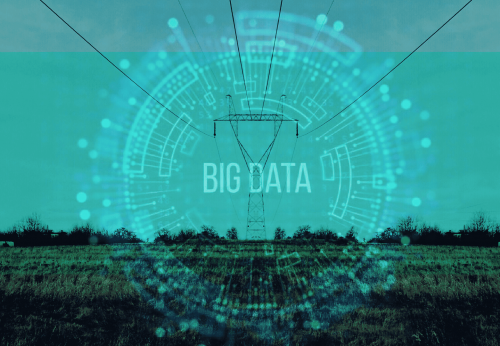Energy and sustainability: 3 innovative technologies in the energy sector

Sustainability has become a central issue in the energy sector, driven by the need to reduce environmental impact, ensure energy security and meet growing demands for cleaner energy sources. With increasing pressure to reduce carbon emissions and adopt more sustainable practices, the sector faces significant challenges, but also promising opportunities.
In this article, we will explore the challenges and opportunities of sustainability in the energy sector, highlighting three innovative technologies that are shaping a more sustainable energy future: Artificial Intelligence (AI), Cloud Computing and Real-time Data Analytics.
Sustainability in the energy sector: challenges and opportunities
The transition to a more sustainable energy sector presents a series of challenges. The need to balance economic growth with environmental protection is one of the main difficulties faced by companies and governments. Furthermore, the integration of new technologies and the modernization of existing infrastructure require significant investments, both in financial terms and in training.
However, this transition also brings significant opportunities, many of which are aligned with the “4 Ds” of energy: Decarbonization, Decentralization, Digitalization and Democratization. These four pillars represent the main trends that are shaping the future of the energy sector.
Decarbonization
Decarbonization is the process of reducing greenhouse gas emissions, mainly carbon dioxide, from energy generation. This trend drives the adoption of renewable energy sources, such as solar and wind, and promotes energy efficiency at all levels of the production and consumption chain.
Decentralization
Decentralization refers to the shift of energy production from large central plants to smaller, distributed systems, such as microgrids and distributed generation. Therefore, this allows for greater grid resilience, better integration of renewable sources, reduced reliance on centralized energy sources, and enhanced energy autonomy.
Digitization
Digitization involves the application of digital technologies to improve efficiency, security and sustainability of the energy sector. This includes the use of sensors, automation, and communications technologies to optimize operations, predict demand, and manage energy distribution in real time.
Democratization
Energy democratization is related to broader and more equitable access to clean energy sources and the possibility of consumers also becoming energy producers (prosumers). In this way, a more dynamic and competitive market is created, where innovation and sustainability are encouraged.
3 innovative technologies for a sustainable energy sector
To face these challenges and take advantage of the opportunities offered by the 4 Ds of energy, the sector needs to adopt innovative technologies that allow the transition to a more sustainable model. Below, we explore three of these technologies.
1. Artificial intelligence (AI)
AI has the potential to transform the energy sector by optimizing the management of electrical grids, predicting demands and integrating renewable energy sources. In this way, it can be used to analyze large volumes of data in real time, identifying patterns and predicting behaviors that help to improve operational efficiency.
For example, AI algorithms can predict energy demand based on historical data and weather conditions, allowing energy companies to adjust their production in real-time. This not only reduces energy waste, but also ensures that supply meets demand in an efficient and sustainable way.
Furthermore, the AI can be applied in predictive maintenance of infrastructures, identifying potential failures before they occur. This improves system reliability and reduces downtime, contributing to more sustainable operation.
2. Cloud computing
Cloud computing offers a flexible and scalable platform for processing and storing large volumes of data generated by the energy sector. Cloud adoption allows energy companies to access IT resources on demand, paying only for what they use, which can result in significant savings and more efficient operation.
Furthermore, cloud computing facilitates collaboration among different stakeholders, enabling real-time sharing of data and insights. This is particularly important in a sector where coordination between different players, such as network operators, energy suppliers, and consumers, is essential to ensure sustainability and efficiency.
The cloud also offers advanced data analytics and machine learning capabilities, enabling energy companies to process large volumes of information quickly and efficiently. This opens the door to innovations such as automated management of electrical networks and optimization of energy distribution.
3. Real-time Data Analytics
Real-time data analysis is a highly valuable technology for the energy sector, as it allows informed decision-making based on up-to-date data. This technology can be used to monitor the performance of energy systems, predict failures, and optimize energy distribution in real time.
Real-time data analytics allows energy companies to quickly respond to changes in demand or network issues, ensuring a more stable and efficient operation. Additionally, this technology can be used to monitor energy consumption in real time, allowing consumers to adjust their usage habits to save energy and reduce costs.
Another important application of real-time data analysis is in the integration of renewable energy sources. By monitoring and analyzing energy production from sources such as solar and wind in real-time, companies can adjust distribution and ensure that the energy generated is used as efficiently as possible.
How to obtain these technologies?
Adopting these innovative technologies requires not only technical knowledge, but also the ability to integrate different systems and ensure they work cohesively and efficiently.
Mouts IT provides technological solutions for the energy sector, with expertise in Artificial Intelligence, Cloud Computing and Real-time Data Analytics.
Custom implementation
Mouts understands that each energy company has its own needs and challenges. Therefore, it offers personalized solutions that perfectly adjust to the requirements of each client. From initial consultation to implementation and ongoing support, we ensure your business has the tools and knowledge needed to adopt and integrate AI, cloud and real-time data analytics technologies.
Systems integration
With our expertise in system integration, your company can ensure that all implemented technologies work in harmony, optimizing operations and improving overall efficiency. This action includes the integration of legacy solutions with new technologies, ensuring a smooth and seamless transition.
Support and maintenance
In addition to implementation, Mouts offers ongoing support and maintenance services to ensure your operations remain efficient and secure. With 24/7 monitoring and a dedicated support team, we are ready to resolve any issues and ensure your business continues to operate at the highest level of efficiency.
Conclusion
In summary, sustainability in the energy sector is a complex challenge, but also a significant opportunity for innovation and growth. Technologies such as Artificial Intelligence, Cloud Computing and Real-time Data Analytics are at the forefront of this transformation, offering companies the tools they need to operate more efficiently and sustainably.
With Mouts IT, your company can access these technologies and integrate them effectively into your operations, ensuring not only sustainability, but also competitiveness in the energy market. Get in touch today to learn more about how our solutions can help your company lead the way to a more sustainable energy future.
Discover more content like this on our blog
Related news
Innovation, the global market and divers topics about the technology universe are currently available on our blog.
 Cases
Cases
Big Data in energy: how to manage data in the energy sector?
The energy sector is one of the fundamental pillars of the global economy, driving everything from large industries to domestic consumption. With the advancement of digital technologies, the amount of data generated in this sector has increased exponentially, making Big Data an essential tool for companies seeking to stand out in a competitive market. But how to collect and analyze this data effectively? And what are the benefits of a well-done analysis?
 Cases
Cases
Why is cloud migration important for the energy sector?
Energy market professionals can already see that the sector is undergoing a significant transformation, driven by the need for greater efficiency, sustainability, and innovation. Amid these changes, cloud migration has stood out as one of the main strategies for companies looking to optimize their operations, reduce costs and improve collaboration.
 Cases
Cases
Digital Transformation: Why Does Your Company Need It Now
Discover how Digital Transformation can revolutionize your business, boost competitiveness, and prepare your company for the future.
